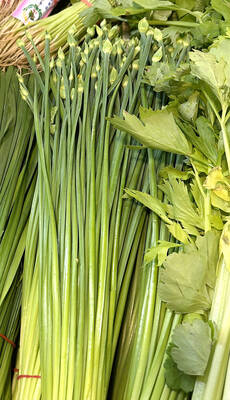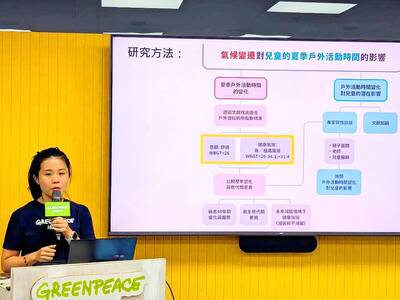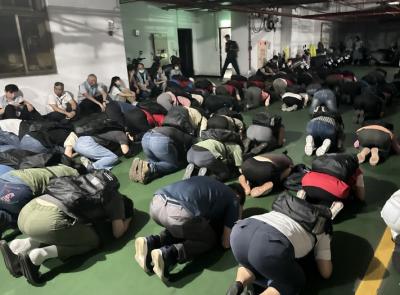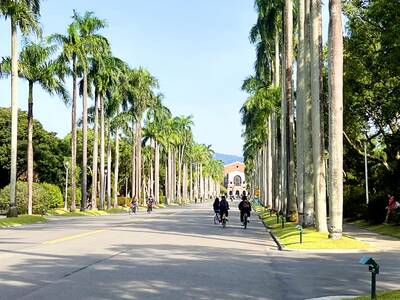The legislature's Education and Culture Committee voted yesterday to scrap the Statute Governing the Broadcasting Development Fund (廣播電視發展基金條例).
However, the committee decided to postpone a review of the bill eliminating Article 14, Section 1 of the Radio and Television Act (廣播電視法) and turn it over for further negotiation among the legislative caucuses.
Section 1 says that radio and TV stations must appropriate a portion of their revenues as a fund to develop the Public Television Service (公共電視, PTS), which became the source of money for the Broadcasting Development Fund (廣電基金, BDF).
The fund had been managed by the BDF Foundation. Before PTS was founded in 2001, the foundation used the collected funds to produce public television programs to be aired by three broadcasting stations: Taiwan Television (台視), China Television (中視) and the Chinese Television System (華視).
The foundation lost its function after PTS was established.
It also became the subject of ire for the pan-blue camp, as the foundation’s executive director, Lin Yu-huei (林育卉), advocated a strong pan-green agenda and launched a movement to boycott media organizations perceived as supporting pan-blue parties.
Chinese Nationalist Party (KMT) Legislator Hung Shiu-chu (洪秀柱) introduced the bill. She said it could not be put to a vote last year because the Democratic Progressive Party (DPP) opposed the bill.
“The reason they [the DPP] were against the bill is that although this is a small position, it is nevertheless useful because they can put their own people there,” she said.
Hung also said that the article hurt the broadcasting industry because broadcasting service operators are forced to pay additional fees after paying revenue tax and airwave usage fees.
DPP Legislator Kuan Bi-lin (管碧玲) disagreed. She said that broadcasting is a special industry that must be regulated by either capping service charges or asking service providers to pay rent.

The Taipei Department of Health’s latest inspection of fresh fruit and vegetables sold in local markets revealed a 25 percent failure rate, with most contraventions involving excessive pesticide residues, while two durians were also found to contain heavy metal cadmium at levels exceeding safety limits. Health Food and Drug Division Director Lin Kuan-chen (林冠蓁) yesterday said the agency routinely conducts inspections of fresh produce sold at traditional markets, supermarkets, hypermarkets, retail outlets and restaurants, testing for pesticide residues and other harmful substances. In its most recent inspection, conducted in May, the department randomly collected 52 samples from various locations, with testing showing

The government should improve children’s outdoor spaces and accelerate carbon reduction programs, as the risk of heat-related injury due to high summer temperatures rises each year, Greenpeace told a news conference yesterday. Greenpeace examined summer temperatures in Taipei, New Taipei City, Taoyuan, Hsinchu City, Taichung, Tainan and Kaohsiung to determine the effects of high temperatures and climate change on children’s outdoor activities, citing data garnered by China Medical University, which defines a wet-bulb globe temperature (WBGT) of 29°C or higher as posing the risk of heat-related injury. According to the Central Weather Administration, WBGT, commonly referred to as the heat index, estimates

Taipei and other northern cities are to host air-raid drills from 1:30pm to 2pm tomorrow as part of urban resilience drills held alongside the Han Kuang exercises, Taiwan’s largest annual military exercises. Taipei, New Taipei City, Keelung, Taoyuan, Yilan County, Hsinchu City and Hsinchu County are to hold the annual Wanan air defense exercise tomorrow, following similar drills held in central and southern Taiwan yesterday and today respectively. The Taipei Mass Rapid Transit (MRT) and Maokong Gondola are to run as usual, although stations and passenger parking lots would have an “entry only, no exit” policy once air raid sirens sound, Taipei

Taipei placed 14th in the Quacquarelli Symonds (QS) Best Student Cities 2026 list, its highest ever, according to results released yesterday. With an overall score of 89.1, the city climbed 12 places from the previous year, surpassing its previous best ranking of 17th in 2019. Taipei is “one of Asia’s leading higher-education hubs,” with strong employer activity scores and students “enjoying their experience of the city and often keen to stay after graduation,” a QS staff writer said. In addition to Taipei, Hsinchu (71st), Tainan (92nd), Taichung (113th) and Taoyuan (130th) also made QS’ list of the top 150 student cities. Hsinchu showed the